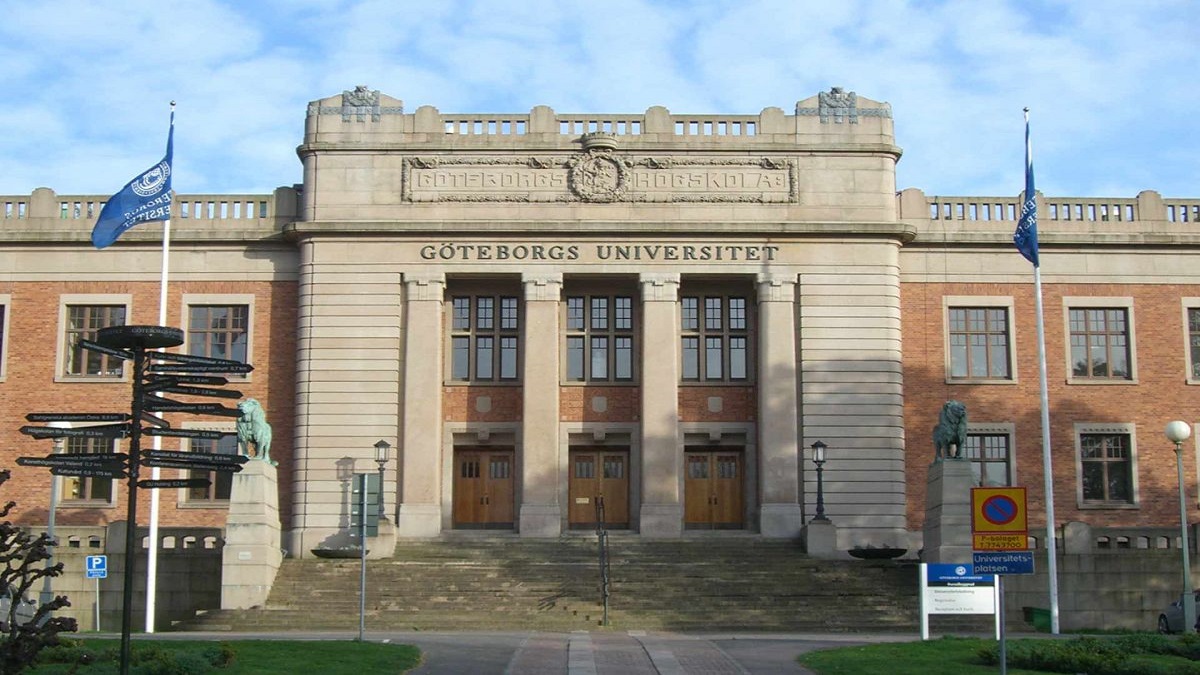The University of Gothenburg tackles society’s challenges with diverse knowledge. 56 000 students and 6 600 employees make the university a large and inspiring place to work and study. Strong research and attractive study programmes attract scientists and students from around the world. With new knowledge and new perspectives, the University contributes to a better future.
Postdoctoral fellow in Molecular Immunology
The Institute of Biomedicine is involved in both research and education. In both of these areas, we focus on fundamental knowledge of the living cell – what it consists of, how it works, how its function is directed by the genetic material, and how it interacts with various kinds of micro-organisms. Using this knowledge, we try to elucidate the causes of diseases, and find new ways to diagnose and treat them.
The Institute is composed of the following four departments:
- The Department of Infectious Diseases
- The Department of Microbiology and Immunology
- The Department of Medical Biochemistry and Cell Biology
- The Department of Laboratory Medicine
At present, the institute has about 360 employees and approximately 450 million SEK in total assets
We are now looking for an ambitious postdoctoral scientist with a genuine interest in immunology to join the Thorén lab at the Sahlgrenska Center for Cancer Research at the University of Gothenburg. We offer a friendly and stimulating environment in a highly dynamic research area.
Subject area
Molecular Immunology
Subject area description
In the Thorén lab we have a broad interest in human Natural killer (NK) cell biology. The research group comprises a mix of clinical and preclinical scientists and our research activities range from projects aiming at identifying novel NK cell receptor ligands to clinical immunotherapy trials. The postdoc will be part of the Sahlgrenska Center for Cancer Research which comprises 20-25 research groups focusing on different aspects of cancer biology.
Duties
The project involves fundamental assays of immune cell function as well as cutting edge technologies, such as single-cell RNA sequencing combined with oligo-conjugated mAbs, high-dimensional flow cytometry and CRISPR screens. The successful candidate will work closely together with preclinical and clinical colleagues, bioinformaticians etc and excellent communication skills are essential.
Eligibility
The eligibility criteria for employing teaching staff are set out in Chapter 4 of the Higher Education Ordinance and in the Appointment Procedure for Teaching Posts at the University of Gothenburg.
To be eligible for appointment as a postdoc, the applicant is required to have a doctoral degree, a doctoral degree in art or a foreign degree that is deemed to be equivalent to a doctoral degree. This eligibility requirement must be met before the employment decision is made.
In the first instance, those who have completed their degree no more than three years prior to the end of the application period shall be considered. Those who have completed their degree more than three years prior to the end of the application period may also be considered in the first instance if special grounds exist. Special grounds relate to leave of absence due to illness, parental leave, commissions of trust within union organisations, service within the defence services or other similar circumstances, as well as clinical service or service/assignment relevant to the subject area.
Assessment criteria
We are looking for a highly motivated scientist with a doctoral degree in a relevant subject and a strong publication record in peer-reviewed journals. The candidate should be self-motivated, have good communications skills and capacity to work both independently and together in teams. Fluency in English is a requirement.
Eligible applicants will be ranked based on relevance of research background and publication record. Interviews will be held with top-ranked applicants to assess language proficiency, communication skills and analytical skills and personal suitability. The ideal candidate has experience in above-mentioned technologies, such as multidimensional flow cytometry, CRISPR methodology and multi-omics data generation and analysis etc.
Regulations for the evaluation of qualifications for academic positions are given in Chapter 4, Section 3 – 4 of the Higher Education Ordinance.
Employment
The employment is full time and temporary, two years with the possibility of one year’s extension, with placement at the Institute of Biomedicine. First day of employment as agreed.
Contact information
If you have any questions about the position, please contact Fredrik Bergh Thorén, Professor, Phone: +46-31-786 66 73, e-mail fredrik.thoren@gu.se
Unions
Union representatives at the University of Gothenburg can be found here: https://www.gu.se/om-universitetet/jobba-hos-oss/hjalp-for-sokande
Application
Submit your application via the University of Gothenburg’s recruitment portal by clicking the “Apply” button. It is your responsibility to ensure that the application is complete as per the vacancy notice, and that the University receives it by the final application deadline.
The application should contain:
– A cover letter giving a brief description of previous research experience, and a motivation to why you are applying
– A CV including a list of publications
– Proof of completed PhD
– Contact details of two references
Applications must be received by: 2022-08-20
Information for International Applicants
Choosing a career in a foreign country is a big step. Thus, to give you a general idea of what we and Gothenburg have to offer in terms of benefits and life in general for you and your family/spouse/partner please visit:
https://www.gu.se/en/about-the-university/welcome-services
https://www.movetogothenburg.com/
The University works actively to achieve a working environment with equal conditions, and values the qualities that diversity brings to its operations.
Salaries are set individually at the University.
In accordance with the National Archives of Sweden’s regulations, the University must archive application documents for two years after the appointment is filled. If you request that your documents are returned, they will be returned to you once the two years have passed. Otherwise, they will be destroyed.
In connection to this recruitment, we have already decided which recruitment channels we should use. We therefore decline further contact with vendors, recruitment and staffing companies.
Apply
